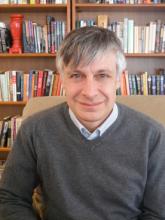organized religion

Goodpasture Christian School sits on a sprawling, bucolic campus seven miles north of downtown Nashville, where 900 students ready themselves for adult lives of college, career, and loving the Lord.
Right next door sits the United Fellowship Center, a planned church where adults will ready themselves to have sex with each other after enjoying a little BYOB togetherness.
It’s the newest incarnation of The Social Club, a whispered-about swingers club in downtown Nashville that left for the suburbs when a building boom took its parking lot. The community went bonkers after zoning hearings revealed the club’s plans to relocate in a former medical office building in Madison — adjacent to Goodpasture and within a mile of an Assemblies of God megachurch.
After months of debate, an emergency city zoning amendment and a state law designed to stop the relocation, the club’s attorney made an announcement: The Social Club would open in its new location as a church.
Protection via the First Amendment effectively silenced zoning complaints — for now. But it sparked conversations about what it means for a secular organization suddenly to label itself a church, and religious scholars seem no more ready to plunge into that debate than American courts have proved to be.
“When I see this case, I do roll my eyes, but I also know Protestant Christians in America don’t own 'church,'” said Kutter Callaway, assistant professor of theology and culture at Fuller Theological Seminary in Pasadena, Calif.

Dear church,
Let me start off this letter by expressing my deep love and appreciation for you. I have been an active participant in the community of faith for about 10 years now, and I have been profoundly blessed, cared for, loved, and inspired to be a better human being through you. I have also seen — and even participated in — some of your ugliest and most unfaithful moments in recent history. But through all of these experiences, nothing but utter appreciation and love remains for you. I believe, in the words of Bill Hybels, that the church is the hope of the world. I believe in your great power and potential to renew and reconcile our broken world through the way of Jesus. I believe that you can do it. That we can do it, together.
With that said, there has been a lot of talk recently about your impending death. For a long time, I believed the hype. I saw the numbers of millennials who were walking away from the churches and both mainline and evangelical churches closing their doors. I was convinced that maybe the church had truly seen the end.
But I was recently reminded that what we have been witnessing in the West is not, in fact, the death of the church at all.

As the Pew Research Center recently found, today’s young people are “less likely than older generations to be affiliated with any religion.” The question is whether this trend is a good thing or a bad thing.
If you are a person of faith, you may worry about the souls of these “millennials,” the generation born after 1980. If you are a critic of organized religion, you may rejoice.

Among the list of U.S. institutions—banks, the medical system, the U.S. Supreme Court, Congress—where would you pin organized religion?
According to a recent Gallup poll, it comes in fourth, falling behind the military, small business, and police. Only 44 percent of Americans have a "great deal" or "quite a lot" of confidence in the church—a downward fall that has been the trend since its height in the 1970s.
Drilling down, Protestants tend to have higher confidence—56 percent—in their churches than Catholics, who fall in at 46 percent. (Commentary is linking this to the child abuse scandals.)
Organized religion isn't alone in this. The overall lack of confidence in American institutions is evident across the board, with television news at 21 percent and Congress at an abysmal 13 percent. Even public schools come in at 29 percent.
But is this at all surprising?
When our ideas about nature come primarily from Sierra Club calendars or selected snippets from Thoreau, an east coast earthquake and monster hurricane (in the same week) are powerful wake-up calls.
We modern urban dwellers and suburbanites like our nature contained and manageable: a nice hike in the woods; a pretty sunset on the drive home; a lush, green lawn (chemically-induced, alas)
Sometimes we like nature so much we decide to worship it -- or to make it the medium for our worship of God or the "higher power" we think might be up there, out there, presiding over it all. We've been wounded by organized religion, perhaps, disgusted by its hierarchies and hypocrisies. "I can worship God on a mountaintop," we decide. (Or -- conveniently, happily -- on the golf course).
In commemoration of Charles Robert Darwin's 200th birthday, Darwin Day Celebration, a nonprofit 501(c)3 educational corporation, is hosting Darwin Day. This international celebration of science and humanity is held on or around February 12, the day that Charles Darwin was born.